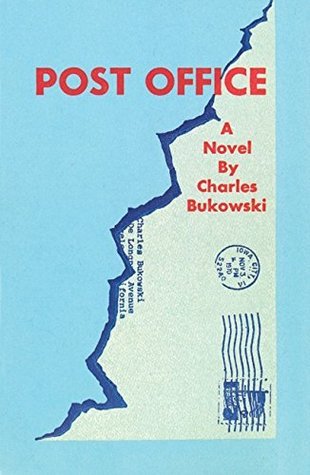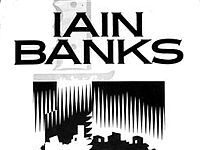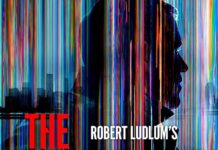In the gritty tapestry of American literature, few voices resonate with the raw authenticity of Charles Bukowski. His debut novel, Post office, lays bare the monotonous grind of working-class life through a lens both unflinching and darkly humorous. Delivering Raw Truth: A Reflective Review of Bukowski’s Post Office invites readers to revisit this seminal work, unpacking its stark portrayal of drudgery and disenchantment. This review embarks on a journey through Bukowski’s unvarnished narrative, exploring the intersections of bleak reality and candid reflection that continue to captivate and provoke.
Exploring the Unfiltered Voice of charles Bukowski in post office and Its Impact on Contemporary Literary Realism

Bukowski’s Post Office strips away any romanticized notions of the American working-class experience,revealing a world steeped in monotony,frustration,and raw human desperation. His prose is unrefined yet precise, channeling a voice that is equal parts weary and defiant. Through the eyes of Henry Chinaski, Bukowski exposes the mechanical grind of bureaucratic labor, weaving a narrative that challenges societal ideals of success and fulfillment. The candidness with which he confronts poverty, addiction, and existential ennui lends the novel an authenticity that resonates deeply within the frameworks of contemporary literary realism.
BEST-SELLING BOOKS IN THIS CATEGORY
What makes post Office especially significant is its unfiltered portrayal of flawed characters navigating a world that refuses to accommodate their eccentricities. Bukowski’s writing refuses to sanitize life’s harshness, rather embracing:
- gritty realism that speaks to the disenfranchised
- Vivid character studies that refuse to conform to traditional heroism
- A rebellion against polished literary formality in favor of raw, firsthand narrative
Thes elements contribute to an enduring impact on literary realism, offering readers and writers alike a blueprint for embracing imperfection and raw human emotion within storytelling.
| Element | Impact on Literary Realism |
|---|---|
| Raw Narrative tone | Enhanced authenticity in depicting working-class struggles |
| Antiheroic Protagonist | Shifted focus towards flawed, relatable characters |
| Unpolished Language | Encouraged experimentation beyond conventional literary constraints |
dissecting the Raw Portrayal of Working-Class Life through Bukowski’s Gritty Narrative Style and Stark Characterization

Bukowski’s narrative style in Post Office strips away any romanticized veneer often associated with working-class life, opting instead to present a world brimming with rawness and unfiltered reality. His prose is direct and unpolished,mirroring the monotony and sometimes brutal nature of the protagonist’s daily grind. Through gritty metaphors and unvarnished dialog, the novel captures the exhaustion, frustration, and occasional dark humor that define the blue-collar existence. The settings-dilapidated apartments, cluttered mailrooms, and dingy bars-act almost as characters themselves, reinforcing the claustrophobic atmosphere and conveying a palpable sense of entrapment that permeates the working-class experience.
Characters in the novel are painted with stark strokes, embodying resilience and vulnerability without succumbing to clichés. They live in a world governed by routine yet are driven by fleeting desires and small rebellions against systemic inertia. Consider the following depiction of key characteristics:
| Characteristic | Portrayal in the Novel |
|---|---|
| Endurance | Perseverance despite menial work and bleak prospects |
| Disillusionment | Crushing realization of limited social mobility |
| rebellion | Subtle acts of defiance and personal freedom |
| Isolation | Emotional and social alienation within urban settings |
- Human flaws and raw emotions are laid bare without judgment.
- The narrative embraces the mundane to highlight deeper societal truths.
- Complexity arises from the interplay of despair and humor.
How Post office Captures the Monotony and Absurdity of Routine labor with Dark Humor and Stark Honesty

Charles Bukowski’s Post Office masterfully dissects the relentless grind of routine labor by weaving dark humor with a brutally honest narrative voice. The novel transforms mundane postal work into a theater of the absurd, exposing the small indignities and soul-sapping monotony that define so many blue-collar lives. Bukowski’s protagonist endures endless boredom, pointless bureaucratic battles, and co-worker eccentricities, all delivered with a sardonic wit that punctures the veil of normality. This dark comedic framing doesn’t just entertain-it sharpens the reader’s awareness of how such drudgery shapes identity, prompting reflection on both individual resilience and institutional absurdity.
through a series of episodic encounters,post Office creates a stark tableau of the workplace’s repetitive cycles,often contrasted with moments of raw,candid emotion. Bukowski’s clear-eyed honesty shuns romanticization,binding reader empathy to the lived reality of the “everyman” laborer. The novel’s interplay of humor and despair crafts a nuanced critique of monotony, enhanced by recurring motifs of escapism and existential weariness. The following table illustrates key elements that Bukowski uses to infuse dark humor into the stark portrayal of routine labor:
| Element | Function | Affect |
|---|---|---|
| Deadpan Narrative | Conveys mundane events without exaggeration | Heightens absurdity by juxtaposition |
| Repetitive Dialogues | Mimics workplace tedium | Creates comedic rhythm and frustration |
| Exaggerated Characters | Emphasizes quirks of co-workers | Amplifies satire towards bureaucracy |
| Darkly Humorous Incidents | Relieves tension and adds levity | Engages readers despite bleakness |
The Role of Autobiographical Elements in Enhancing the Emotional Depth and Authenticity of Bukowski’s Protagonist
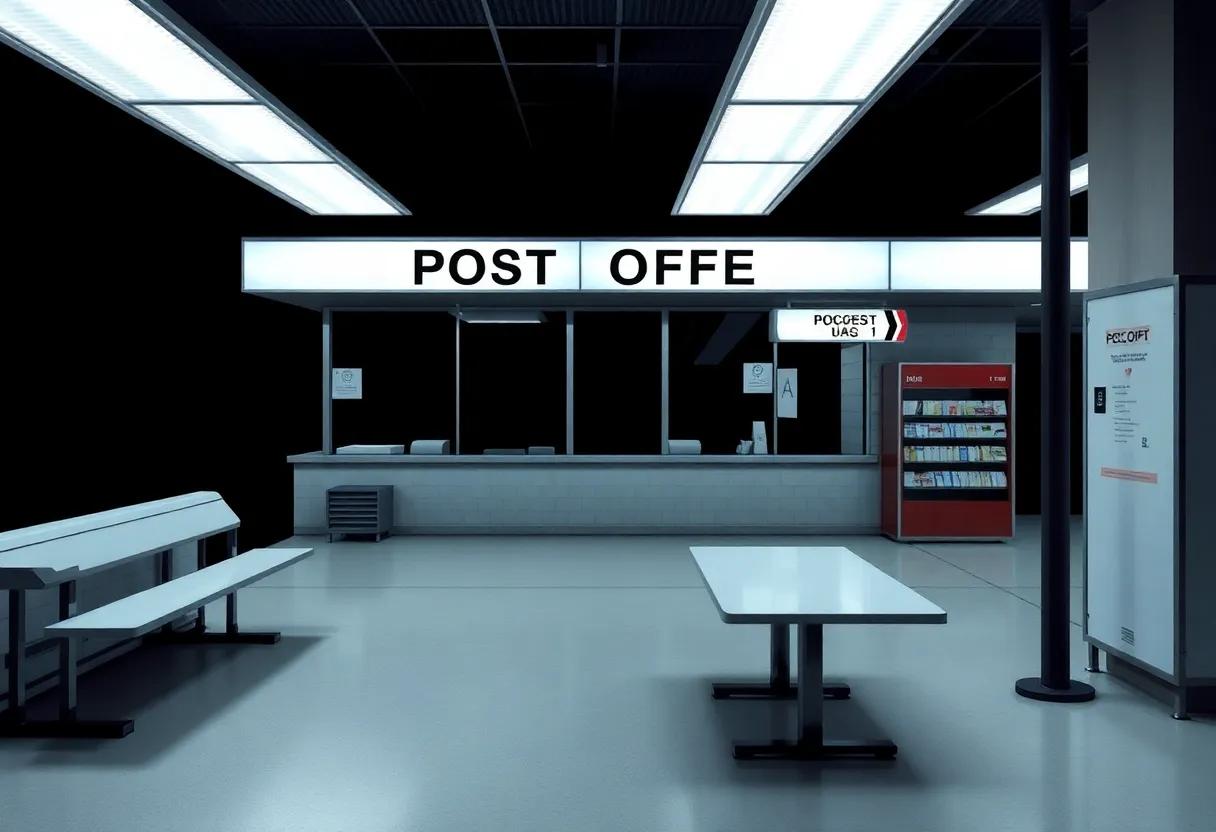
Charles Bukowski’s protagonist in Post Office is undeniably a vessel of the author’s own lived experiences, infusing the narrative with a candidness that resonates on a profoundly human level. This autobiographical grounding strips away the veneer of fiction, revealing a character whose struggles, vices, and moments of fleeting joy feel palpably real. The protagonist’s blue-collar job,his abrasive camaraderie,and his relentless pursuit of small gratifications are not mere plot devices but intimate reflections of Bukowski’s world. This intimacy invites readers not only to observe but to empathize,blurring the lines between author and creation,and translating personal hardship into worldwide emotional truths.
Several key elements contribute to this immersive authenticity:
- Raw, unfiltered voice: The protagonist’s narrative isn’t sanitized; it mirrors Bukowski’s unapologetic candor.
- Vivid depictions of mundane settings: The office, bars, and dingy apartments become characters themselves, grounded in Bukowski’s firsthand knowledge.
- Emotional vulnerability: Moments of despair and brief solace humanize the protagonist beyond stereotypes of the “tough guy.”
| Autobiographical Aspect | Emotional Impact |
|---|---|
| Personal struggles with employment | heightens feelings of entrapment and futility |
| Alcohol use and dependency | Conveys self-destructive coping mechanisms |
| Transient relationships | Illustrates profound loneliness and longing |
Examining bukowski’s Use of Minimalist Language to Convey Complex emotions and Social Critiques in Post Office
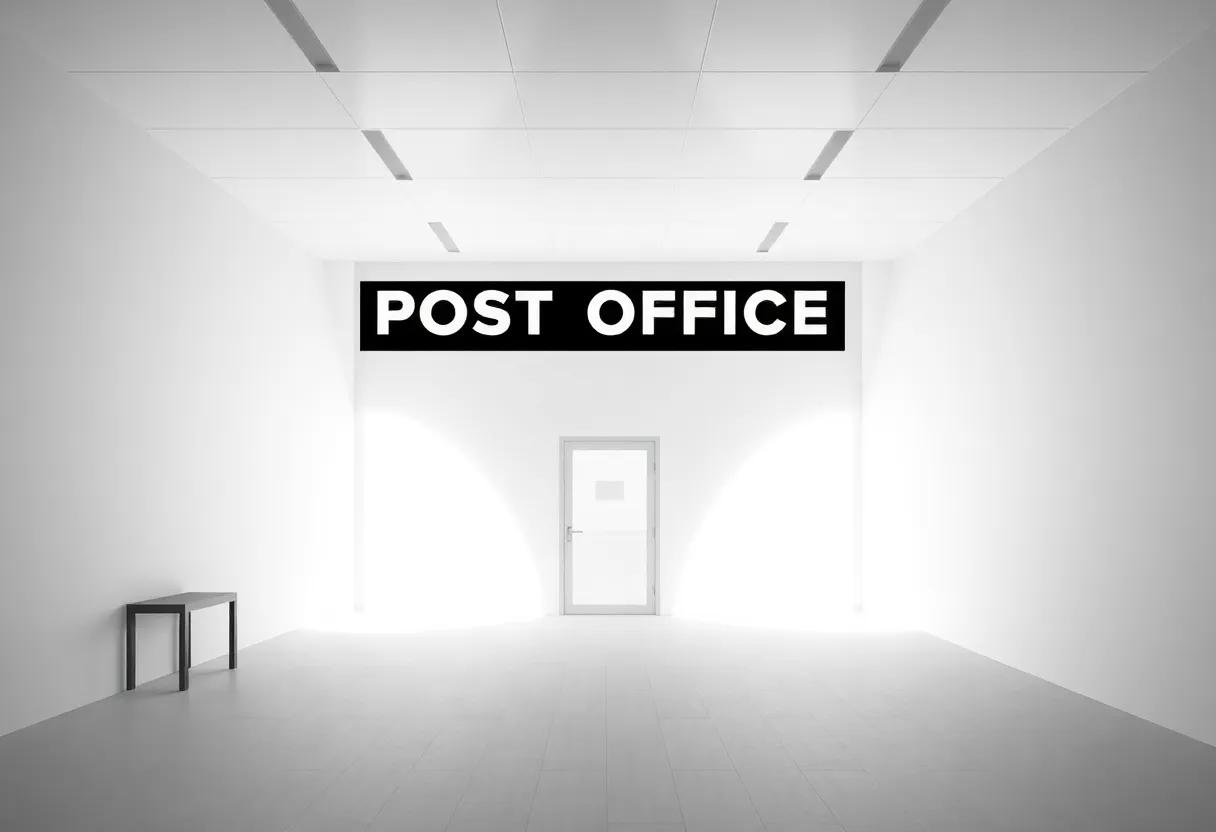
In Post Office, Bukowski wields minimalist language not as a limitation but as a vessel carrying the weight of heavy emotions and pointed social commentary.His prose strips away ornamental language, presenting raw, unvarnished snapshots of working-class monotony and existential disillusionment. Each sentence is a deliberate, sharp stroke-a portrayal of humanity in its most vulnerable and unfiltered state. Through this economy of words, complex feelings such as frustration, despair, and fleeting moments of hope are rendered with striking clarity, allowing readers to inhabit the emotional landscape without distraction or embellishment.
Moreover, Bukowski’s stylistic restraint serves as a powerful critique of institutional bureaucracy and societal apathy. By focusing on the repetitive tedium of postal work, he exposes the dehumanizing effects of modern labor, cleverly juxtaposing the simplicity of his language with the multifaceted nature of social alienation. Consider the table below highlighting some exemplary minimalist techniques Bukowski employs:
| Technique | Description | Effect |
|---|---|---|
| Sparse Dialogue | Conversations stripped to essentials | Creates authenticity and emotional weight |
| Short Sentences | Brief, impactful phrasing | Heightens tension and immediacy |
| Repetitive themes | Recurrence of monotony and despair | Underscores social critique of stagnation |
Through these techniques, bukowski does not just tell a story-he embodies a feeling and a critique, making the minimalist approach a powerful conduit for exploring both the internal struggles of the individual and the external pressures of society.
Balancing Brutal Truths with Moments of Vulnerability: A Deep Dive into the Emotional range of Post Office

Charles Bukowski’s Post office is a brutal landscape painted with sharp strokes of cynicism and disenchantment, yet beneath this harsh exterior lies a faint pulse of vulnerability that humanizes the protagonist. The narrative does not shy away from exposing the gritty, monotonous grind of blue-collar life, where dignity is frequently enough lost in the bureaucracy of the everyday. Though, it is indeed precisely in these moments of raw honesty that the emotional depth of the novel surfaces, revealing a man grappling not only with the external cruelties of his job but also with his internal battles – loneliness, fleeting hopes, and the desire for connection.
The juxtaposition between harsh truths and fragile introspection is what gives Post Office its lasting resonance. Bukowski crafts a world where the characters’ rough exteriors are pierced by fleeting, almost imperceptible moments of tenderness. This balance is reflected in the following emotional spectrum:
- Brutality: The often sordid, unvarnished realities of postal work and street life
- Alienation: The loneliness stemming from societal disconnection and personal demons
- Yearning: Glimpses of hope and the desire for intimacy amidst despair
- Resilience: Endurance in the face of relentless adversity and monotony
| Emotion | Manifestation in the Novel |
|---|---|
| Brutality | Graphic workplace abuse, harsh language |
| Alienation | Isolated characters, internal monologues |
| Yearning | Moments of vulnerability, short-lived romances |
| Resilience | Persistence despite setbacks |
Recommendations for Readers Seeking Candid, Unvarnished Stories Rooted in Real-Life Struggles and Resilience
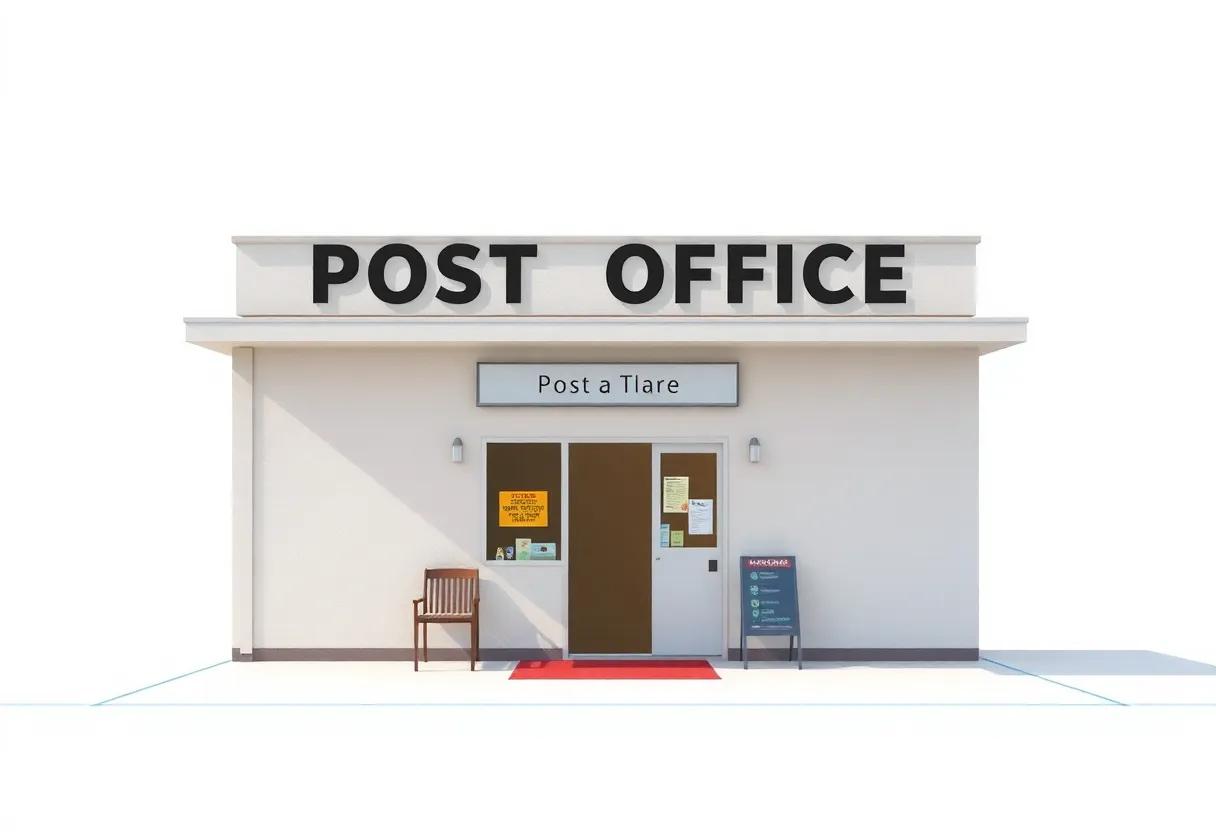
For those drawn to narratives that shed pretenses and embrace raw authenticity, Post Office serves as an unfiltered mirror reflecting the grit and monotony of everyday existence. Charles bukowski’s prose doesn’t comfort or sanitize; instead, it challenges readers to confront life’s darker corridors-the stagnation of dead-end jobs, the struggle against societal expectations, and the fragile resilience forged through relentless hardship. This is literature stripped down to its bare bones, where each sentence pulses with the weariness and defiance of a man who lived on society’s margins and refused to look away.
Readers seeking stories that don’t shy away from the blunt realities of life will find rich ground in Bukowski’s work.His unapologetic voice honors the imperfect human experience in all its chaotic glory. If you crave unpolished, emotionally charged storytelling, consider exploring other authors and works that share this ethos:
- John Fante – raw, heartfelt depictions of struggle from California’s underbelly
- Jack Kerouac – spontaneous prose capturing restless spirits and life on the fringes
- Joyce Carol Oates – unflinching portrayals of trauma and survival
| Author | Notable Work | Resonates With |
|---|---|---|
| John Fante | Ask the Dust | Raw ambition, economic hardship |
| Jack Kerouac | On the Road | Restlessness, outsider experience |
| Joyce Carol Oates | them | Survival, gritty family dynamics |
the Book’s Legacy and Influence on Subsequent Generations of Writers Embracing Gritty, Unconventional Storytelling

Charles Bukowski’s Post Office dismantled the polished veneer of conventional literary narratives, paving the way for authors to explore the raw, often uncomfortable facets of human existence. His unapologetic embrace of the mundane and the flawed resonated deeply with a generation of writers eager to break free from sanitized storytelling. Bukowski’s blunt prose and vivid characterization proved that literature need not always be refined; it coudl instead be visceral, darkly humorous, and brutally honest. This pioneering approach inspired a wave of authors who sought to capture life’s grit without romanticizing it, redefining what stories could-and should-look like.
Many contemporary writers attribute their courage in tackling taboo subjects and unconventional narrative techniques to the groundwork laid by Bukowski. Some key elements influenced by Post Office include:
- Authenticity over polish: Prioritizing genuine voices,cracks,and imperfections.
- Anti-hero protagonists: Characters who challenge moral binaries and embrace complexity.
- Minimalist, direct language: Emphasizing clarity and raw emotion over ornate description.
- Exploration of blue-collar life: Shedding light on overlooked social realities with unfiltered detail.
| Legacy Aspect | Contemporary Examples |
|---|---|
| Unvarnished Storytelling | Raymond Carver, Tao Lin |
| Focus on Flawed characters | Junot Díaz, Gillian Flynn |
| Honest Blue-Collar Settings | Jesmyn Ward, Frank Bill |
| Minimalist Prose Style | Denis Johnson, Lydia Davis |
Visualizing Bukowski’s Harsh Urban Landscape Through Literary Imagery and Its Resonance in readers’ Imagination
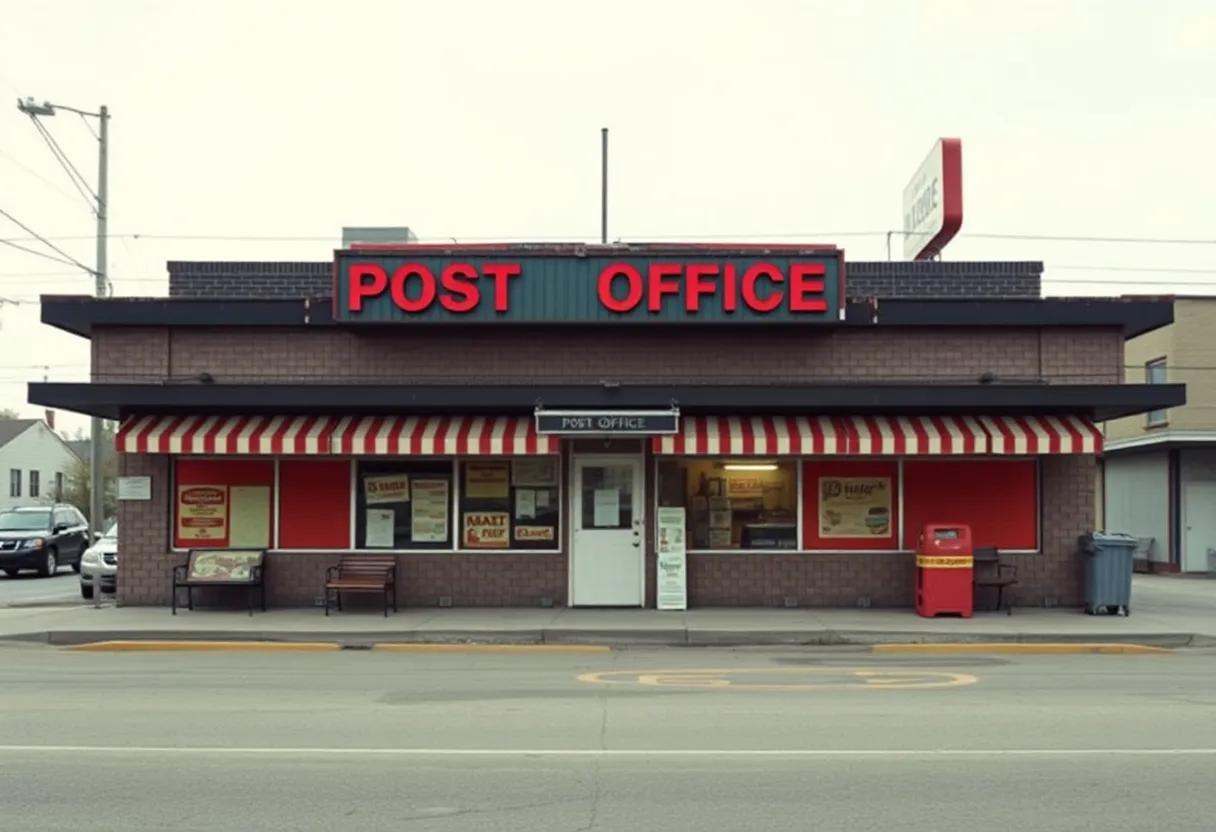
Bukowski’s Post Office paints the cityscape not with the broad strokes of gritty realism alone but through a tapestry of visceral images that pulse with the rawness of everyday urban decay.His depiction of streets littered with refuse, flickering neon signs casting an eerie glow, and the oppressive claustrophobia of cramped, suffocating offices transcends mere setting-it becomes a character unto itself. Through metaphoric descriptions, the city breathes a harsh indifference, concurrently nurturing and corroding those who inhabit it. This vivid literary imagery serves as a stark mirror reflecting the underbelly of human existence, drawing readers into a world where monotony and desperation intertwine seamlessly.
The resonance of Bukowski’s brutal urban vision lingers long after the last page is turned, stirring readers’ imaginations to confront their own perceptions of city life and human struggle. His craft compels contemplation about the paradoxes embedded in modern existence-the beauty found in squalor, the solitude within crowds, and the fleeting moments of connection amid isolation. Bukowski’s descriptive prowess enriches the narrative with layers of meaning,inviting readers to explore:
- The tactile grittiness: the smell of stale cigarettes,the clammy touch of dirty walls
- The ambient mood: the hum of fluorescent lights,the distant wail of sirens
- The emotional landscape: alienation,hopelessness,defiant survival
| Imagery Element | Emotional Impact | Reader Response |
|---|---|---|
| Rusty mailboxes | Decay and neglect | Elicits empathy,discomfort |
| Cluttered desks | Monotony,entrapment | Sense of claustrophobia |
| Flickering lights | Instability,tension | heightens unease |
How Post Office Challenges Conventional Narratives of Success,Ambition,and the American Dream Through Cynicism

Within Post Office, Bukowski strips away the polished veneers of traditional success and ambition, laying bare a world where the cyclical grind replaces any idyllic vision of upward mobility.The protagonist’s relentless cynicism acts as a mirror reflecting the disillusionment of many who chase the so-called American Dream only to find it a hollow promise. Instead of glorifying hard work as a ladder to prosperity, Bukowski exposes how monotonous labor can sap the human spirit, forcing individuals into complacency or self-destruction.This unvarnished portrayal challenges the cultural narratives that equate success with material gain or social status, highlighting the emotional and existential costs that are never spoken of in motivational speeches or glossy advertisements.
Moreover,the novel’s depiction of ambition is subversive-rather than a beacon leading toward progress,it often manifests as desperation,resignation,or bouts of reckless defiance.The characters navigate the harsh realities of their environment with a sardonic edge, their attitudes marked by a poignant blend of humor and bitterness. This cynicism not only critiques societal pressures but also questions the very definition of achievement. Consider the following table summarizing contrasting elements Bukowski unsettles in his narrative:
| Conventional Narrative | Bukowski’s Counterpoint |
|---|---|
| Success = Wealth & Status | Survival in a dead-end job |
| Ambition = Progress & Growth | Ambition as desperation or escape |
| American Dream = Happiness & Fulfillment | American Dream as disillusionment & cynicism |
- Disillusionment: Central to the book’s ethos, showing the gap between expectation and reality.
- Existential Struggle: Reflects an internal chasing of meaning amidst societal neglect.
- Subversion of Norms: Turning cultural ideals on their head through raw,unfiltered viewpoint.
A Reflective Look at the Moral Ambiguities and Ethical questions Raised by Bukowski’s Portrayal of the Human Condition
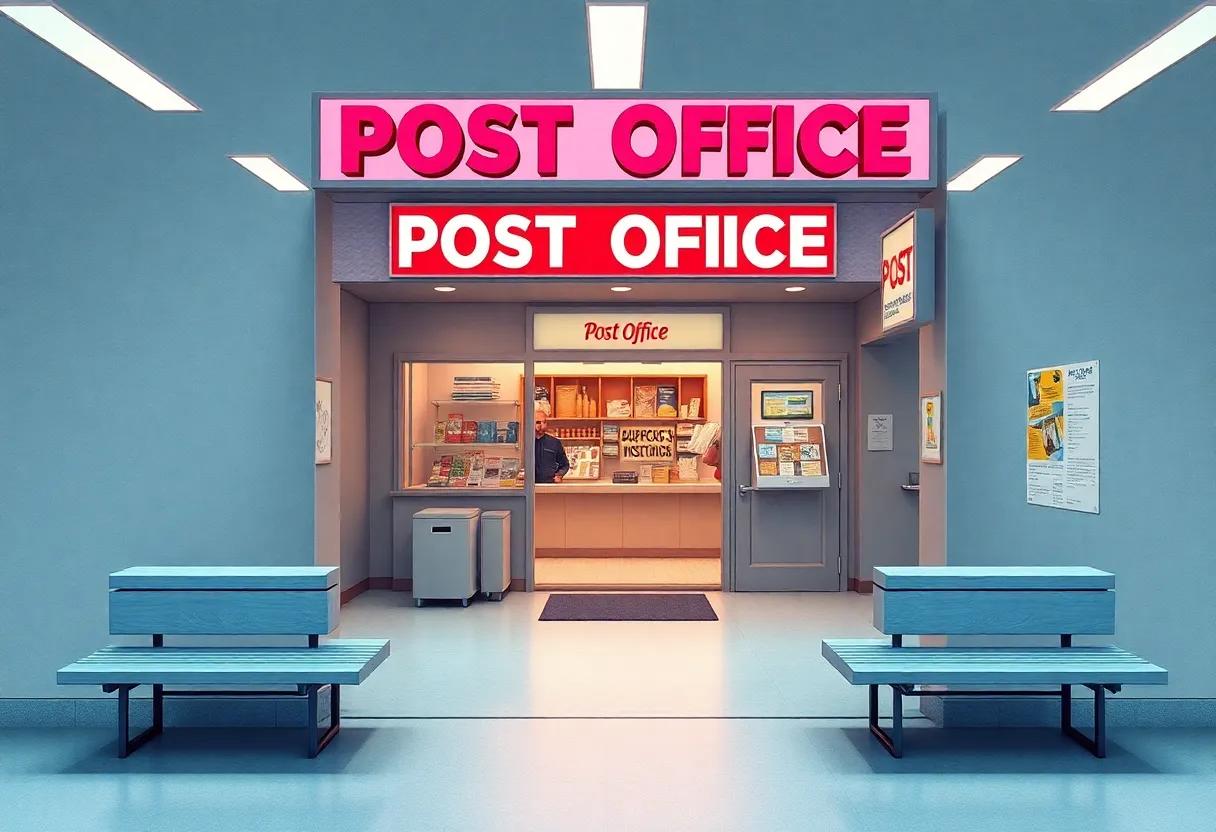
Bukowski’s Post Office unapologetically exposes the contradictions embedded in everyday existence, capturing a world where moral clarity often dissolves into a murky gray. The protagonist’s navigation through a dead-end job, fractured relationships, and relentless self-destructive tendencies invites readers to question conventional notions of right and wrong. Rather than offering neat ethical resolutions, the narrative thrives in the discomfort of ambiguity-where survival sometimes demands compromise, and personal failings collide with systemic indifference. This literary approach forces us to confront the uncomfortable truth that human behavior frequently resists simplistic judgement, highlighting the intricacies of individual struggle against broader social forces.
Within the tapestry of Bukowski’s storytelling, ethical dilemmas unfold not as grand philosophical debates but as small, raw decisions with profound implications. Consider these recurring themes in the protagonist’s world:
- The cost of honesty: Brutal candor coexists with social alienation,blurring lines between truthfulness and cruelty.
- Complicity in monotony: Enduring a soul-crushing job becomes a personal battleground between resignation and resistance.
- Self-sabotage as agency: Defiant behaviors question whether destructive acts are freedom or futility.
| Ethical Question | Context in Post Office | Reader’s Reflection |
|---|---|---|
| Is moral compromise ever justified? | Characters often settle for ‘lesser evils’ to endure daily life. | Challenges black-and-white perspectives on integrity. |
| Does nihilism serve as a defence? | Protagonist’s detachment masks suffering. | Invites empathy for emotional self-preservation. |
Insights into Bukowski’s Writing Process and Inspirations Behind Post Office Revealed Through Critical Analysis

Charles Bukowski’s Post Office emerges not merely as a semi-autobiographical novel but as a visceral window into the gritty realities that shaped his artistic vision. His writing process,as revealed through critical dissection,was intensely personal and almost ritualistic. Bukowski often embraced a raw, almost stream-of-consciousness style, allowing the bluntness of his experiences to flow unhindered onto the page. This approach fostered authenticity, with his prose deliberately eschewing literary polish in favor of capturing the chaotic cadence of everyday life. It’s this unfiltered narrative method that lends the novel its brutal honesty and distinctive voice, echoing the monotony, drudgery, and dark humor inherent in the American working class experience during the mid-20th century.
Inspiration behind Post Office can be traced to Bukowski’s own tenure as a postal worker, where the disconnect between individual aspiration and institutional oppression is palpable. Key thematic elements such as alienation, repetitive labor, and fleeting human connections reflect his sharp observations of the postal system’s impersonal machinery. Critics have also noted Bukowski’s captivation with societal underbellies, which informed the vivid, often uncomfortable scenarios and characters populating the narrative. Elements influencing Bukowski’s writing include:
- Existential disillusionment: portraying the struggle to find meaning in unremarkable routines.
- Anti-establishment sentiment: A critique of bureaucratic and societal constraints.
- Autobiographical realism: Drawing from personal hardships and encounters within blue-collar environments.
| Aspect | Influence on Writing |
|---|---|
| Workplace monotony | Fuelled repetitive, rhythmic prose mimicking daily grind |
| Alcohol and escapism | Infused cynicism and dark humor in character dialogues |
| urban decay | Set tone of bleakness and survival against social decline |
Practical Tips for Engaging with Post Office: Approaching Bukowski’s Brutal Honesty Without preconceptions

Engaging with Post Office requires a willingness to shed preconceived notions about traditional storytelling or moral comfort. Bukowski’s narrative isn’t polished or sanitized; it’s a gritty,unapologetic dive into the monotony and madness of everyday labor. To navigate this landscape effectively, try to resist the urge to judge the characters or their environment too quickly. Instead, observe the raw emotions and candid observations that permeate the text-these are the true veins of authenticity Bukowski taps into.
Approach the novel with an open mind and a readiness to embrace discomfort. Here are some practical tips to keep in mind:
- Set aside romantic expectations: This isn’t a hero’s journey but a slice of life stripped down to its barest truths.
- Focus on voice: Bukowski’s brutal honesty is as much about tone as content-let the cadence of his language guide your experience.
- Note the contradictions: Life here is messy and paradoxical; accept this complexity rather than seeking neat resolutions.
| Tip | Effect on Reading Experience |
|---|---|
| embrace Imperfection | Allows deeper connection with flawed characters |
| Notice the Language Rhythm | enhances appreciation of Bukowski’s candid tone |
| keep Preconceptions in Check | Prevents premature judgments that limit understanding |
Understanding Charles Bukowski the Writer: His Life,Influences,and Enduring Contribution to Modern Literature
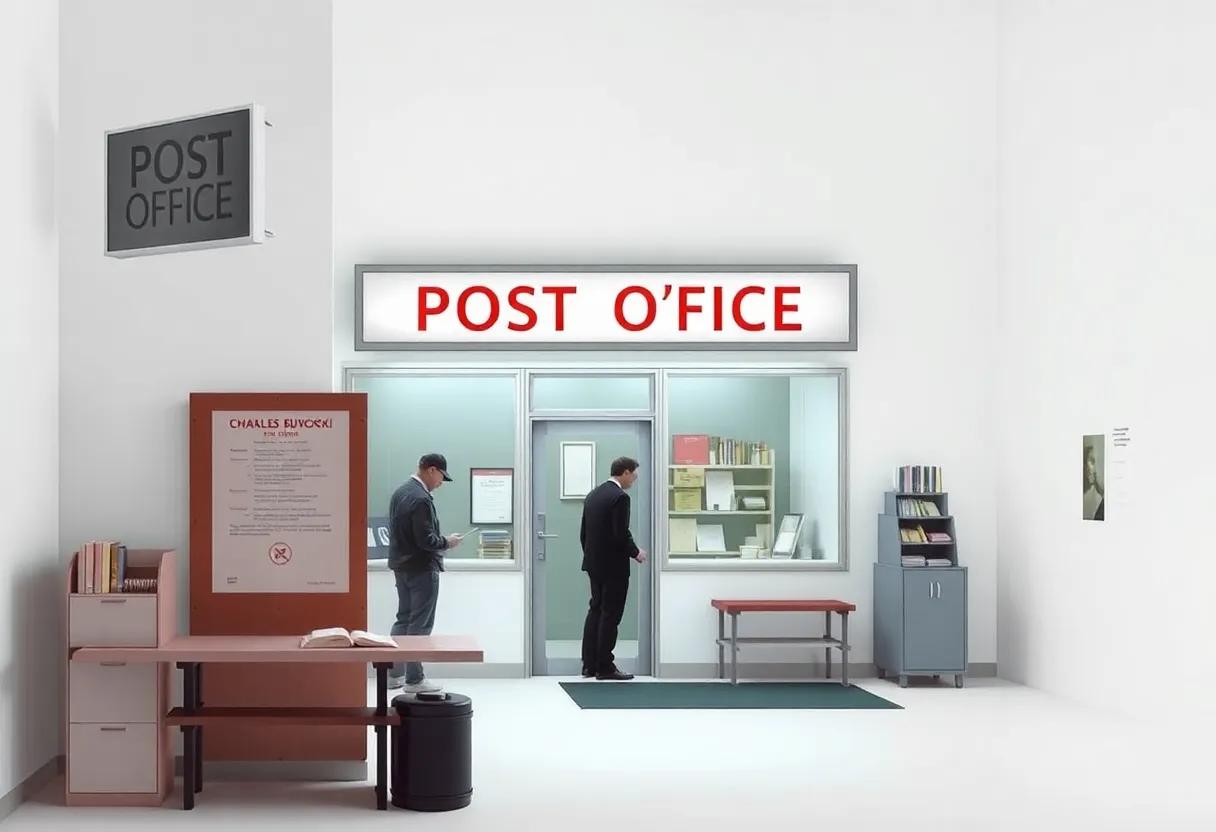
Charles Bukowski’s voice emerges from the gritty underbelly of American life, unfiltered and unapologetic. His work is a tapestry woven from years of struggle, alcoholism, and a relentless disdain for societal pretenses. Post Office, his debut novel, lays bare the monotony and madness of blue-collar existence, capturing the existential ennui that defines the lonely margins of the working class. The rawness of Bukowski’s prose reflects a man who lived his literature-each line a punch thrown in defiance against sanitized narratives. his candor is not just a stylistic choice but an essential element of his influence: by confronting brutal truths head-on, Bukowski reshaped modern literature’s perception of the “American dream,” flipping it into a bleak reflection of survival rather than glory.
His influences were as unconventional as his output; from the hard-boiled detectives of noir fiction to the beat poets who dared to strip language down to its core, Bukowski synthesized diverse currents into a singular, rebellious voice. Key facets of his literary contribution include:
- Authenticity over Artifice: Eschewing elaborate metaphor for direct, often coarse verbiage that resonates with genuine emotion.
- Simplicity as Strength: Short sentences and sharp dialogue that cut through the noise, making the mundane resonate with profound significance.
- Anti-Hero Portrayals: Champions of failure and misfits, knobs that symbolize resilience against conformity.
| Characteristic | Impact on Literature |
|---|---|
| Gritty Realism | Blurred lines between fiction and lived experience |
| Minimalist Style | Influenced generations of raw, minimalist storytellers |
| Subversive Themes | Expanded scope for exploring life’s darker sides |
In revisiting Charles Bukowski’s Post Office through this reflective lens, we finish not with tidy resolutions but with the lingering grit of honest labor and raw human complexity. The novel’s unvarnished portrayal of monotony, struggle, and fleeting moments of defiant joy invites readers to confront the uncomfortable realities beneath everyday routines. Ultimately, Post Office stands as a testament to Bukowski’s fearless narrative voice-a mirror held up to the frequently enough overlooked corners of life, compelling us to see the beauty and brutality intertwined in all things. As we close this review, the novel’s rough edges remain, refusing to be smoothed away, much like the truths it relentlessly delivers.

